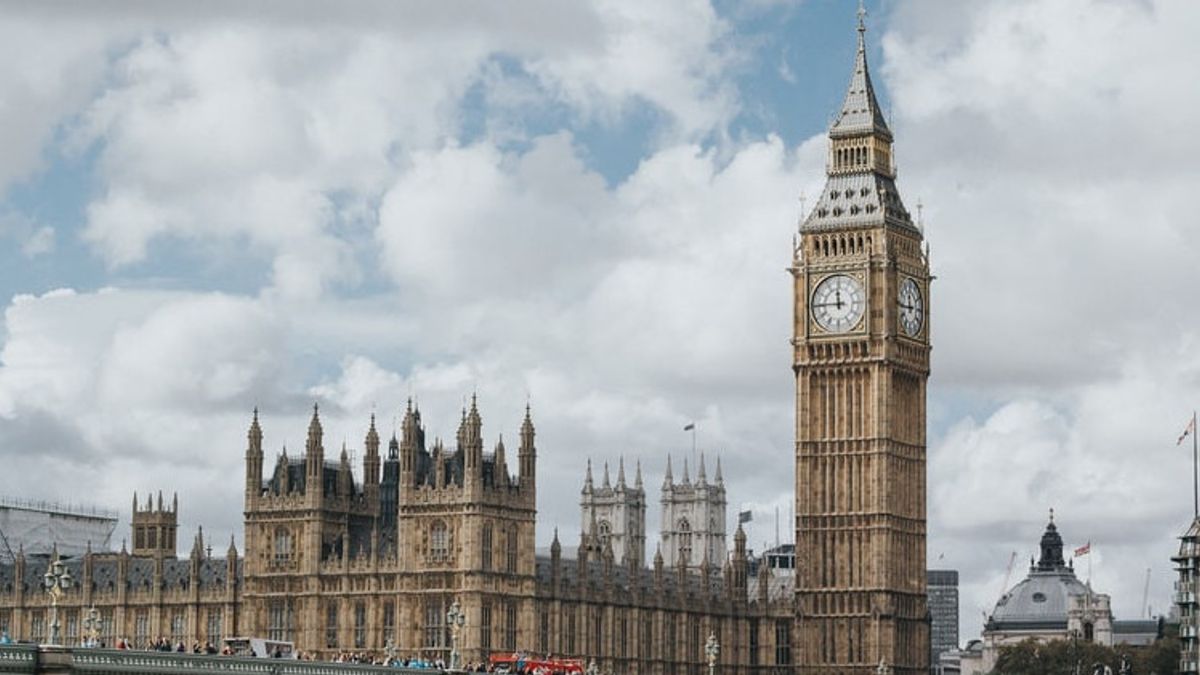JAKARTA - On May 31, 1859, the tower clockbell known as Big Ben chimed for the first time. Big Ben sits atop the 320-foot Elizabeth Tower which also sits above the Houses of Parliament in Westminster, London.
The name 'Big Ben' initially only referred to the bell on the clock, but over time Big Ben referred to the entire clock itself.
There are two main stories about how Big Ben got his name. Many claim that the name is from the notorious Sir Benjamin Hall. Another well-known story holds that the name Big Ben is taken from the popular heavyweight boxer Benjamin Caunt.
Reporting from History, Sunday May 31, Big Ben became a landmark building in London after a fire destroyed much of the Palace of Westminster in October 1834.
At that time the royal astronomer, Sir George Airy, wanted the clock to have high accuracy. To ensure the accuracy of the clock, it is checked twice a day by the Royal Greenwich Observatory.
Yet many watchmakers say that Airy's goal of making the watch as accurate as possible is impossible. Airy ended up relying on the help of Edmund Beckett Denison, a tough lawyer known for his expertise in horology or the science of measuring time.
Not only the accuracy of the time, Big Ben also has a solid material. Even after a bomb destroyed the House of Commons room during World War II, Elizabeth Tower survived and Big Ben continued to function.
The renowned and accurate timekeeping is set by a pile of coins placed on the large pendulum of the clock, ensuring a steady movement of the hands at all times.
At night, the four clock faces, each 23 feet high, are illuminated by lights. The light above Big Ben also lights up to let the public know when a parliamentary meeting is taking place.
Not Always PerfectHowever, Big Ben's condition isn't always perfect. The first chime mounted on the clock tower cracked prior to installation and the second chime also cracked shortly after installation resulting in silence from the tower.
The bells stopped ringing again during World War I and the tower was not lit at night during World War II, when most of the City of London turned off the lights to make German bombing more difficult.
Weather conditions such as extreme heat or heavy snowfall also cause the clock to stop ticking, resulting in the bells not ringing. In 1962, piles of snow made a delayed chime sound, causing London to celebrate the new year ten minutes later than other parts of England.
Never StopOn April 30, 1997, at exactly 12:11 p.m., Big Ben's clock stopped ticking for 54 minutes. The incident took place the day before the general election, but the malfunction was not a factor in Tony Blair's landslide vote over the incumbent Prime Minister John Major.
Big Ben also quit again in May 2005, which was one of the hottest days on record in London.
In 2017, Big Ben's bell manager had to do some conservation which resulted in the bell not ringing for four years.
At that time, Londoners were asked to mark the moment by gathering in Parliament Square to hear Big Ben's final clank and they could hear it back in 2021.
The English, Chinese, Japanese, Arabic, and French versions are automatically generated by the AI. So there may still be inaccuracies in translating, please always see Indonesian as our main language. (system supported by DigitalSiber.id)









